Americans are notoriously inward-looking when it comes to electing presidents. Except for rhetorical flourishes (who is tougher on China or Iran, who is closer to Israel), foreign policy did not feature much in the election campaign. When the candidates debated foreign policy, they agreed more than they disagreed. The American electorate still suffers the effects of a lagging economy, and poll after polls throughout our long presidential campaign has demonstrated the American public’s desire to disengage more from foreign entanglements and focus on “nation-building here at home.” Indeed, these sentiments helped bring President Obama into office four years ago, and they have only strengthened since.
And yet, as a global power with global interests, America can not afford simply to disengage from world affairs — and other nations seek incessantly to draw the United States in. Even when when a new president takes office determined to focus on domestic affairs, foreign policy has a way of forcing itself onto his agenda.
In the Middle East, America’s long-term interests will demand continued, perhaps intensifying, American engagement. American status as a global power, her interests in reliable energy flows to global markets and her interests in security for regional partners, mean that the Middle East matters as much to the United States today as ever. But the Arab uprisings of 2011 clearly showed that stability in the Middle East will only come through a transformation of the relationship between ruled and rulers — into a relationship between citizens and the government they choose to support.
That understanding — that the status quo was unsustainable, and that stability demanded change — is why President Obama embraced the Arab Awakening and declared that it is the policy of the United States “to promote reform across the region and to support transitions to democracy.” And the United States has already invested over $500 million in supporting democratic growth in the Arab world. Dealing with political change in a longstanding ally, like Egypt, is one of the toughest foreign policy challenges a major power like the United States can face. And yet America is now committed to supporting Egyptians as they build a more society in which all Egyptians have equal dignity and opportunity.
Still, while America has a great stake in the success of democratic change and broader reform, it is harder for the United States to have a decisive effect on the outcome — that will be mostly determined by Arabs themselves. Here are four challenges facing the next U.S. administration in dealing with the Arab Awakening:
The Arab awakening has turned out very differently in some places than others, making a consistent U.S. response almost impossible. In Syria, a peaceful struggle for democracy was transformed, by government brutality, into an armed insurgency. Now the violence in Syria is increasingly sectarian in nature, and sadly sectarian feeling is whipped up by others who benefit from the terrible cleavage that results. The United States, with its strong belief in equality, pluralism and tolerance, and with its strong interests in regional stability, must avoid taking one side in a region-wide sectarian conflict. More broadly, despite the urgent moral demand to respond to the human devastation unleashed by Bashar’s violence, America must ensure that any steps it takes do not make a bad situation worse — prolonging the war or strengthening the extremists who use the conflict for their own selfish ends. And a war-weary American public is not likely to support greater U.S. involvement in Syria unless they believe they can make a real and positive difference.
A second challenge is how to engage with the feisty new practitioners of Arab democracy. In the newly competitive states of North Africa, open politics means new voices emerging, including some with little practice in the give-and-take of politics or with little acquaintance with the interests at the heart of U.S. engagement in the region. Political winners and political losers are both appealing to Washington for support, and condemning American “interference” (sometimes at the same time!). Some skeptics decry democratic elections that have produced winners with questionable democratic credentials. But just as democracy never guaranteed the triumph of the region’s marginalized liberals, neither should Americans presuppose that it now guarantees the long-term success of Islamists.
American officials have made clear that they’ll accept the outcomes of democratic elections in the region — but that any party claiming to be democratic must reject the use of violence to achieve political goals, respect the equal rights of all citizens, and protect political pluralism. Further, the United States is interested in knowing the clear stance of aspiring Arab leaders on the regional policy issues of most interest to the United States — Iran’s nuclear program, a two-state solution to the Israeli-Palestinian conflict, the continuation of Egyptian-Israeli and Jordanian-Israeli peace. This is natural, since strong relations must be grounded in mutual interests.
In all its engagement with new political actors in the Arab world, the next U.S.administration must take care not to favor, or be seen to favor, one party over any other. Those taking power in the first set of postrevolutionary elections may not be those who ultimately triumph in a newly pluralistic environment. The next administration should not try to pick winners, but to engage broadly all across society — building a foundation of mutual respect on which to pursue cooperative relations based on common interests. Most of all, the U.S. government must avoid the trap of seeking to replace one set of “special relationships” with regional elites with another set.
The third challenge is how to leverage the relations that America as to offer as a positive force for democratic change. The transitions underway in the Arab world differ from previous democratic transitions in many important ways. When the Berlin Wall fell, the former Soviet bloc countries knew exactly what they wanted—to become part of Europe—and they had a clear roadmap and clear incentives to stay on the path to change. None of these advantages exist in the Arab countries now undergoing democratic transition or monarchy-led reform.
The United States, along with others, must articulate a clear and compelling vision for Arab states of what success can look like—not only in terms of democratic frameworks that comport with universal standards, but also in terms of the advantages that could flow from Arab democracies’ improved relations with the United States and Europe.
The still-weak U.S. economy and the domestic politics of foreign aid, however, present a massive challenge to the United States in making investments in the Arab democratic transitions that are commensurate with American interests in the success of those transitions. In a Washington environment where any spending on foreign assistance is politically toxic, the Obama Administration had to respond to the Arab Awakening, an event of global historical significance, with the coins it found under the couch cushions. If the United States wants to help the new Arab democracies succeed, the president will have to make a strong case to Congress and the public as to why Arab democracy is a good investment. And Arab governments eager for U.S. funding will have to do their part, through policy that advances freedom and opportunity for Arab citizens and promotes regional peace.
The fourth challenge for the United States is sustaining support for democratic reform region-wide, even where America has keen security interests at stake. Given the profound transformation underway in the region, the great variance in how leaders as well as mass movements are responding to the pressures for change, and the wide spectrum of consequences for U.S. interests as these cases might play out, consistency beyond the statement of broad principles is a white whale that the next administration should not chase.
As Bahrain in particular illustrates, America’s mix of interests in a given place and time does not always cohere in a unified direction. The events of February and March 2011 outstripped the gradualist approach to reform that the United States had previously pushed in that country and produced a degree of polarization in Bahrain and its immediate neighborhood that now presents its own obstacle to any effort at political compromise.
In the view of U.S. policymakers, Bahrain showed that the failure to change can invite not only domestic instability but also regional meddling. Nonetheless, the growing shadow of Iran demands continued close cooperation between the United States, Bahrain, and its local allies—which tend to see Bahrain’s lesson in a polar opposite fashion, as showing the folly and danger of reform.
One positive note is that the debate between democracy and security is no longer a question of trading off long-term democratic reform for short-term security cooperation. When it comes to reform and stability, the long term has arrived. Regardless of what prejudices or misgivings the next U.S. president may have about Arab democracy, he will be living with it and its consequences for the foreseeable future.
The Brookings Institution is committed to quality, independence, and impact.
We are supported by a diverse array of funders. In line with our values and policies, each Brookings publication represents the sole views of its author(s).
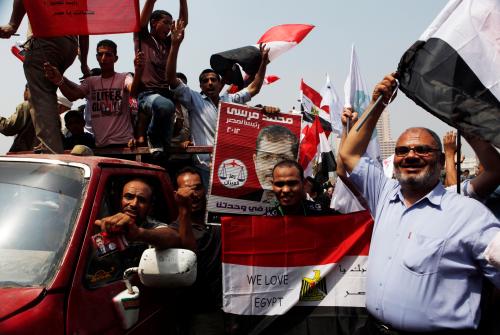
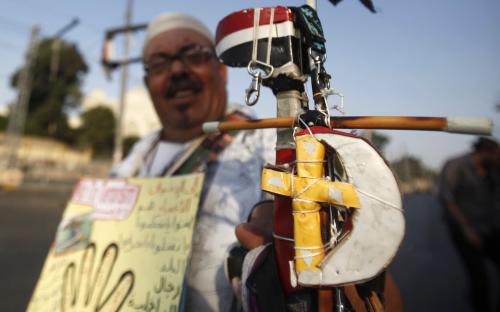
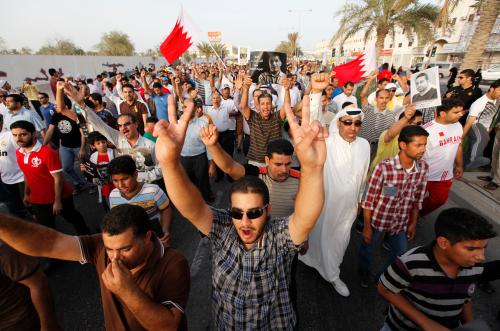
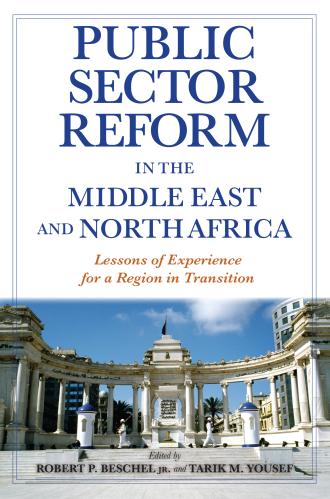
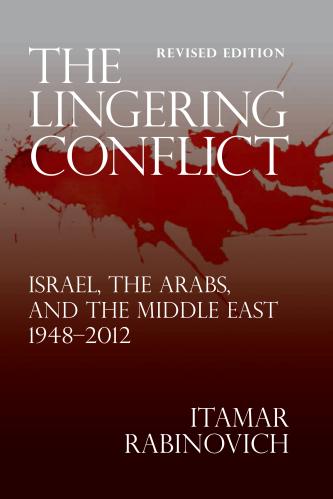
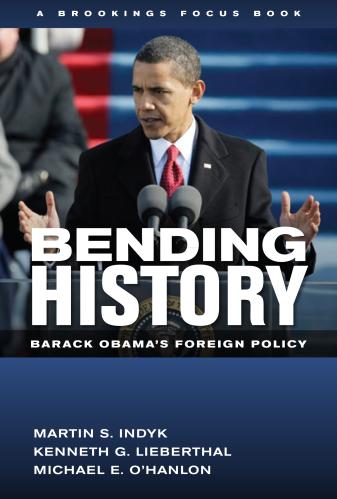



Commentary
Op-edSupporting Arab Transitions: Four Challenges for the Next U.S. President
November 6, 2012